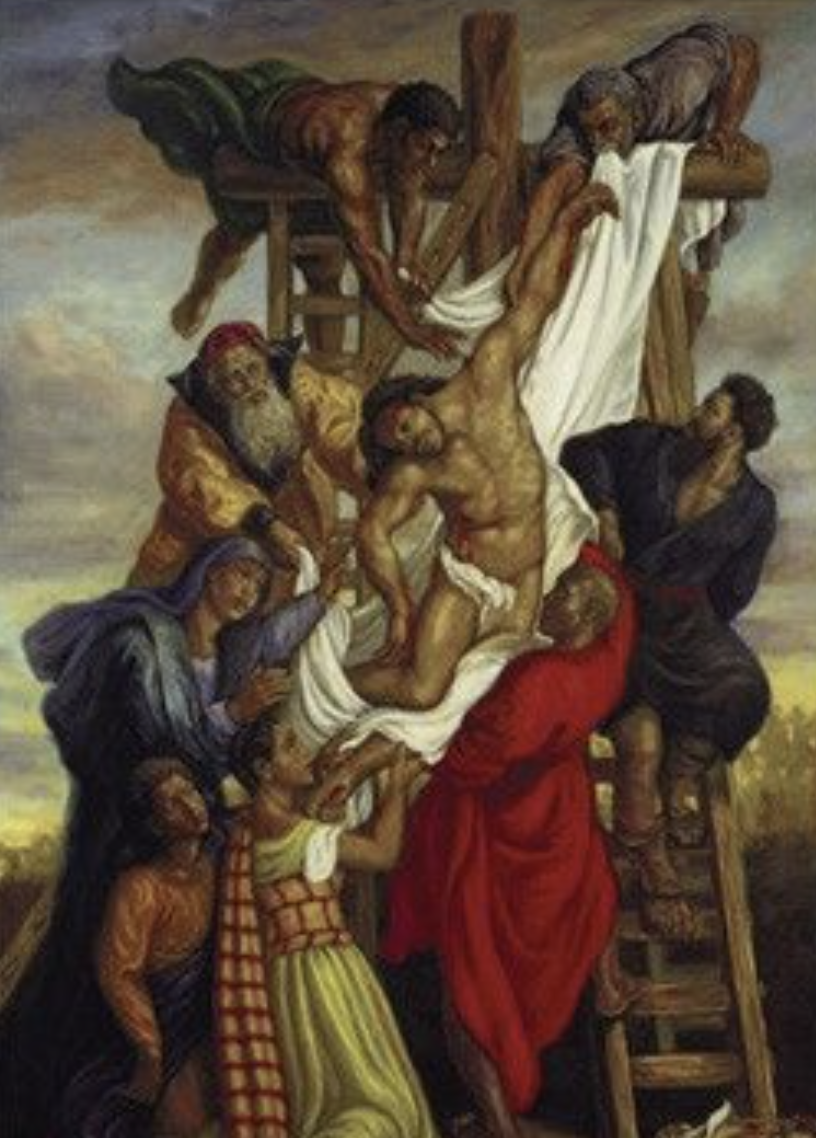Were you There When They Crucified my Lord? Good Friday Reflection
The Cross by Tim Ashkar
Spirituals are uniquely American music, emerging as they do from the African American people who endured slavery. They were people who had their own native African spirituality taken from them, abruptly and violently, as though it were of no account. And then Christianity was forced upon them.
It was forced upon them by Christians who had forgotten that all of God’s children are precious. And God’s children are not meant to be slaves. We are not to enslave others. And we are not to enslave ourselves.
The voices behind these questions come from suffering, come from solidarity with suffering. They are not written by what is currently called, in North American. parlance, ‘the resourced class’ – but from the un-resourced, those without power, those without influence, those without five-year plans and attainable goals beyond living through another day.
The questions are asked by Jesus’ people - the forgotten, the maligned, the oppressed, the enslaved, the mistreated. Those who ask the questions have endured much of what Jesus suffered, and their questions remain.
Where you there when they crucified my Lord? Were you there when they nailed him to the tree?
When men and women took other men and women and children, took them from their homes and families and enslaved them, they nailed Jesus to the tree..
We do this still.
When men and women agreed to a social and political landscape that allowed some to have so much, and begrudged the little given to others, they nailed Jesus to the tree.
We do so still.
When we are pragmatic and careful, we may say, as they said in the scriptures - one man must die, one idea must die, one church must die, one new ideology must die so that everything can stay the same - though we know even as we say this, it is a lie, we nail Jesus to the tree
Every time we tell ourselves that the way we are going is the way of love, when it is clearly not, we nail Jesus to the tree.
The slaves call to us from the fields all these years later, and they call us to account.
Were you there when they laid him in the tomb, they ask?
Where you there when they rolled away the stone?
Do you, like the few forgotten and inconsequential women, stand firm with the suffering, stay and watch and look at what is hard to see - the rot, the decay, the evil, the spoils of hatred, and more, our internal confusion, our despair, the hopelessness that is your own?
Can you? Can we? Is it possible to stand with Jesus even as we have killed him yet again? Can we still stand there in the midst of our own wretchedness and failure to answer his call to love? Will be give up, or will be gather our tenacity and plain old stubbornness, holding steady, standing outside the tomb of death, to see what yet might appear?
God’s mercy is so enormous, so all prevailing, so endless in its generosity, even after all the nails we have hammered into the heartbeat of this world. We may yet stand, in complete fearlessness outside the tomb, and wait with anticipation to the surprise, the illumination, the unexpected. This requires no deserving.
But it brings with it always, a deep sense of remorse that we did not resist when we had the chance but fell in with the other mortal hooligans and spat in the face of what was to be honoured. It brings deep remorse that we did not hold our divine ground and find our nobler selves when we were called upon to do so.
But still, it matters not, for our remorse when it is genuine is but God’s gift of understanding, and as always, is attended by the infinite grace that heals us and lifts our chin once again, to say,
“You are my precious child. All of you are my precious children. For life continues, even after death, for the way of love has the final word in all things.”
May grace attend us all, this Good Friday, and through the Easter weekend.
Our names are Marvelis, Rissel, and Yaina, and we are known as Pegasis.
Three Mo' Tenors - Were You There, Recorded Live: 7/17/2001

